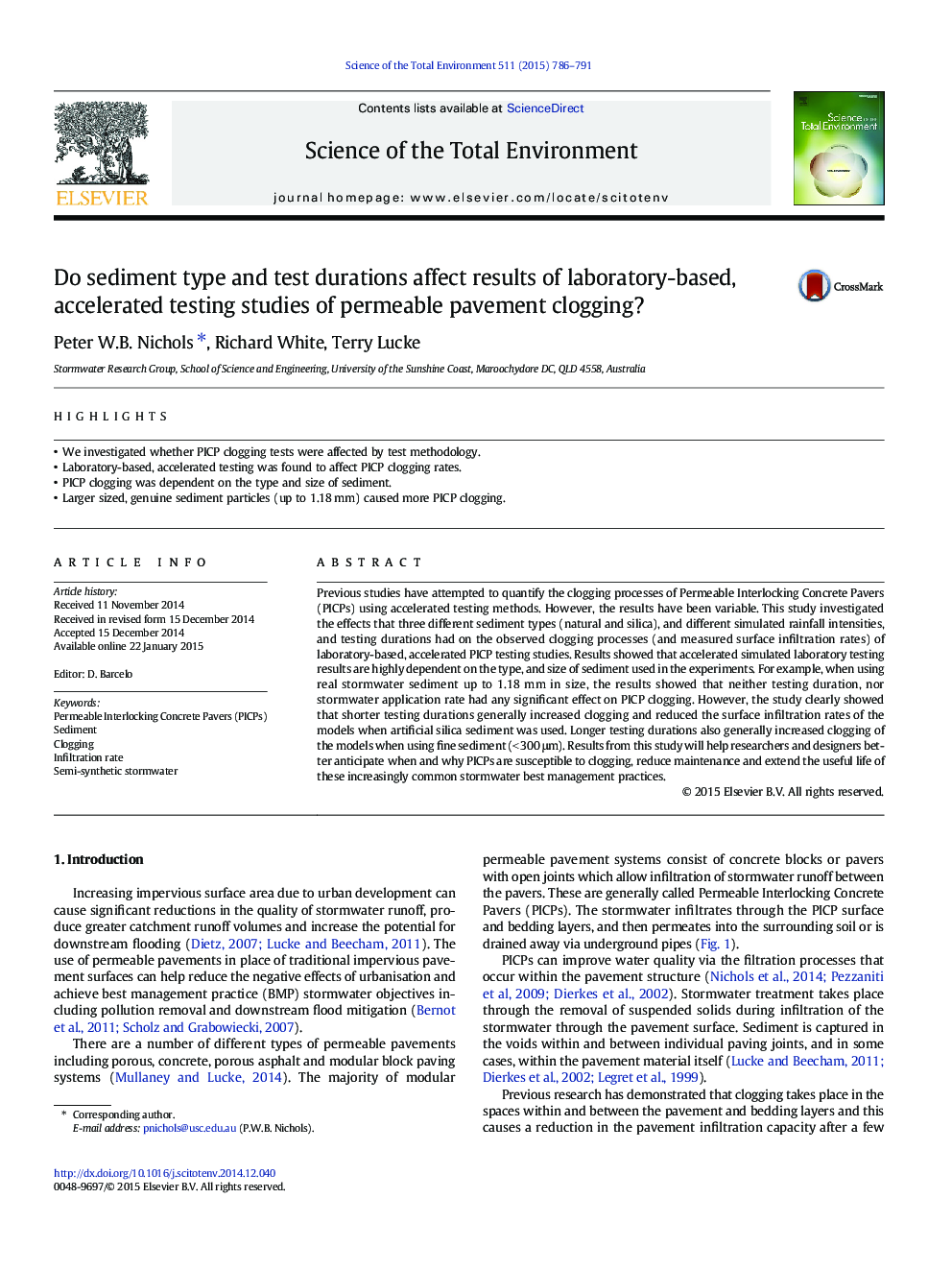| Article ID | Journal | Published Year | Pages | File Type |
|---|---|---|---|---|
| 6327614 | Science of The Total Environment | 2015 | 6 Pages |
Abstract
Previous studies have attempted to quantify the clogging processes of Permeable Interlocking Concrete Pavers (PICPs) using accelerated testing methods. However, the results have been variable. This study investigated the effects that three different sediment types (natural and silica), and different simulated rainfall intensities, and testing durations had on the observed clogging processes (and measured surface infiltration rates) of laboratory-based, accelerated PICP testing studies. Results showed that accelerated simulated laboratory testing results are highly dependent on the type, and size of sediment used in the experiments. For example, when using real stormwater sediment up to 1.18 mm in size, the results showed that neither testing duration, nor stormwater application rate had any significant effect on PICP clogging. However, the study clearly showed that shorter testing durations generally increased clogging and reduced the surface infiltration rates of the models when artificial silica sediment was used. Longer testing durations also generally increased clogging of the models when using fine sediment (< 300 μm). Results from this study will help researchers and designers better anticipate when and why PICPs are susceptible to clogging, reduce maintenance and extend the useful life of these increasingly common stormwater best management practices.
Keywords
Related Topics
Life Sciences
Environmental Science
Environmental Chemistry
Authors
Peter W.B. Nichols, Richard White, Terry Lucke,
